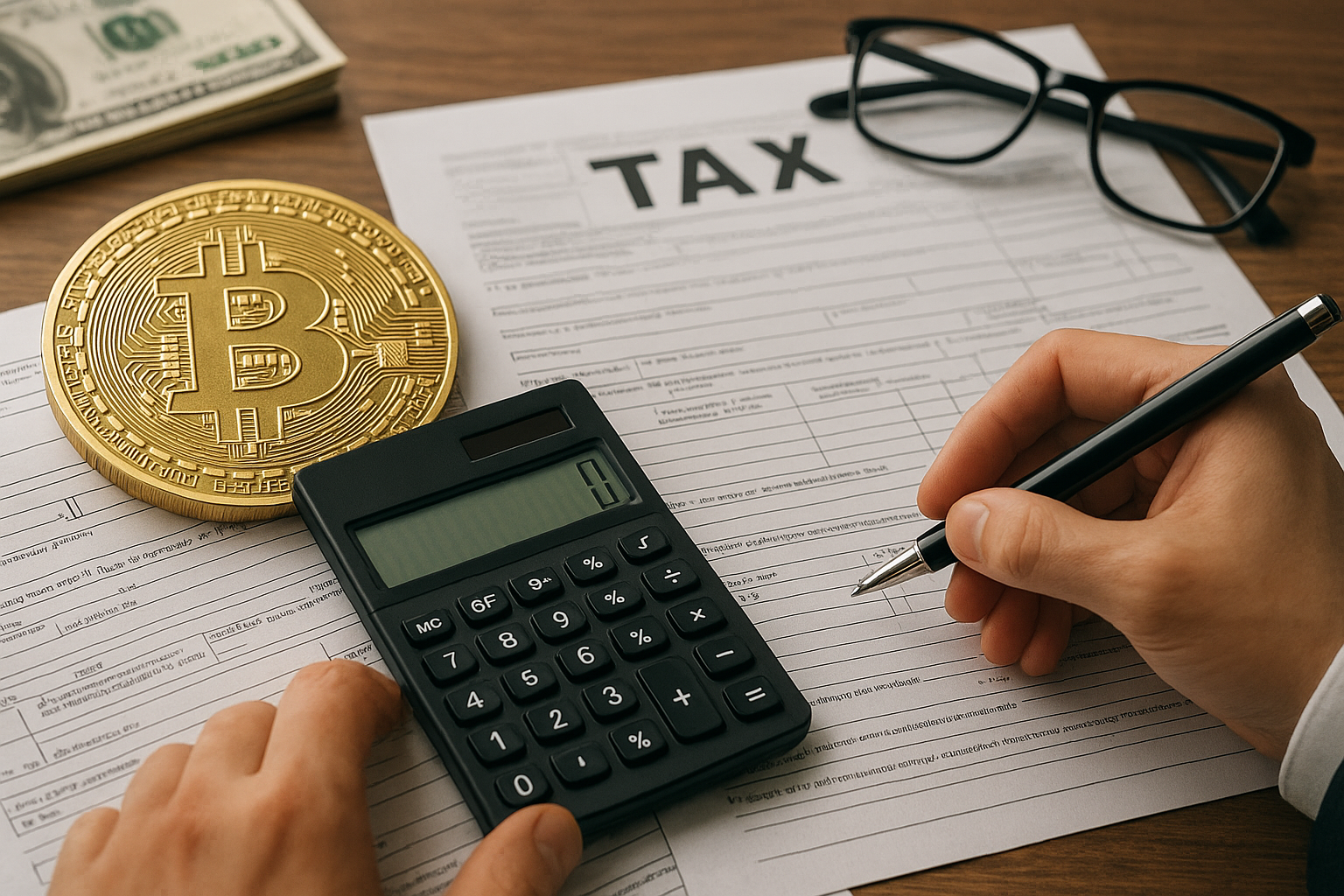Crypto taxes are an inescapable part of investing in digital assets. Staying compliant isn’t about avoiding taxes; it’s about understanding the rules, keeping solid records, and reporting accurately. While tax rules vary by country, several core principles apply in many jurisdictions and can help guide investors as they navigate the tax landscape.
How crypto is treated for tax purposes (the basics)
– Crypto is typically treated as property, not currency, in many tax systems. That means you realize capital gains or losses when you dispose of it (sell for fiat, trade for another crypto, or use it to buy goods or services).
– A tax event occurs when you dispose of crypto, not simply when you hold it. Merely holding or transferring crypto between your own wallets generally isn’t taxable.
– The gain or loss is calculated as the difference between the sale price (or fair market value at the time of disposal) and your cost basis (what you paid to acquire the crypto, including any transaction fees).
– Holding period matters in many jurisdictions. Short-term gains (assets held for a brief period) are often taxed at higher rates than long-term gains (assets held longer). The exact thresholds and rates vary by country.
– If crypto is earned (for example, as income from work, mining, staking, or an airdrop), that income is typically taxed at ordinary income rates at the time you receive it, based on the fair market value of the asset at that moment.
Common taxable events investors should track
– Selling for fiat currency: Cashing out crypto triggers a capital gain or loss.
– Trading one crypto for another: Exchanging one token for a different token is a taxable event, with gains or losses calculated on the basis difference between what you paid for the asset you sold and the fair market value of the asset you received.
– Using crypto to buy goods or services: Paying for purchases is a disposal event; you realize a gain or loss based on the difference between your basis in the crypto and its value when you spent it.
– Receiving crypto as payment: Wages or ordinary income recognition at the fair market value when you receive it; later disposal may produce a capital gain or loss.
– Mining, staking, and certain airdrops: Income at the time you receive the reward, at its fair market value, with subsequent gains or losses recognized on disposal.
What to know about specific identification and cost basis

– Cost basis is the starting point for calculating gains and losses. It includes the amount you paid plus any related fees.
– Specific identification allows you to select which specific lots you are selling, which can optimize tax outcomes (for example, choosing lots with higher cost basis to minimize gains). This requires meticulous record-keeping.
– Some jurisdictions or platforms default to a first-in, first-out (FIFO) method, which can yield different tax results. If you want to use specific identification, you’ll need solid transaction-level records that let you identify exact lots.
– If you don’t have precise records, you may be forced to use a default method and may end up paying more tax or reporting larger gains than necessary.
Record-keeping essentials
– Track every transaction related to crypto: purchase dates, amounts, counterparties, and the exact asset involved.
– Capture the fair market value in your home currency on the date of each disposition or income event.
– Record all associated fees, airdrops, staking rewards, and mining income.
– Maintain wallet addresses, exchange names, and transaction identifiers so you can verify activity if challenged by tax authorities.
– Save receipts, invoices, and screenshots of trades, especially when using multiple exchanges or wallets.
– Reconcile records from exchanges, wallets, and tax software to ensure consistency and completeness.
Reporting and compliance basics by region (high-level)
– United States: Crypto transactions are generally reported as capital gains and losses on Form 8949 and Schedule D. Income from mining, staking, or airdrops is reported as ordinary income. If you’re a trader, some jurisdictions may offer different treatment for active traders, but the default is capital gains on disposals.

– European Union and UK: Many countries treat crypto as taxable property or capital assets. Taxpayers report disposals, transfers, and income from staking or airdrops in annual self-assessment returns or through capital gains forms, with rates varying by country and holding period.
– Other jurisdictions: Rules can differ widely; some treat crypto like property, others as currency for certain purposes. In many places, professional activity or business use may trigger different tax consequences.
Practical tips to stay compliant
– Start with a centralized plan: Decide how you’ll track basis and lots across all wallets and exchanges, and stick to it.
– Use tax software or a reputable crypto tax service: Many tools can import trade histories from exchanges, calculate gains/losses using your chosen cost basis method, and generate tax reports. They can also help with supporting documents for audits.
– Maintain consistent lot tracking: Whenever possible, use specific identification for sales, especially if you hold many batches at different prices.
– Separate personal and business activity: If you’re trading as a business or hobby, keep clear books and consider whether you need professional ongoing tax help.
– Prepare for audits: Store copies of all records, including exchange statements, wallet exports, and receipts. Be ready to explain inputs, calculations, and any adjustments.
– Stay updated: Tax rules evolve. Regulatory changes can alter how crypto is taxed, reporting thresholds, and the treatment of new activities (like certain kinds ofDeFi activities). Regularly check official guidance or consult a tax professional.
– Consider professional guidance for complex situations: Cross-border holdings, multi-language wallets, or substantial holdings can complicate reporting. A tax advisor familiar with crypto can help optimize your position while keeping you compliant.
Common pitfalls to avoid
– Waiting until tax season to gather data: Ongoing tracking makes filing easier and reduces errors.
– Misclassifying income: Crypto rewards, airdrops, and wages paid in crypto must be reported as ordinary income at receipt when applicable.

– Failing to report crypto dispositions: Even small trades or purchases count as taxable events in many jurisdictions.
– Inadequate records for basis: Without precise cost basis, you may overpay taxes or underreport gains.
– Assuming all platforms report everything for you: Not all exchanges issue tax forms or provide basis information, so you may need to supplement with your own records.
Emerging developments and practical resources
– Tax rules continue to adapt as crypto markets evolve. Look for official guidance from your national tax authority and reliable professional sources.
– Consider building a habit: at least quarterly reconciliation of holdings and activity across wallets and exchanges.
– Use reputable tools and platforms for reporting and record-keeping, and keep your software up to date to reflect current tax rules.
In short
– The core principle is simple: you’re generally taxed when you dispose of crypto or when you receive it as income. Your tax basis, holding period, and the nature of the disposal determine the exact tax impact.
– Good record-keeping, clear identification of lots, and timely reporting are your best defenses against errors and penalties.
– Because rules differ by country and can change, consider consulting a tax professional with crypto experience to tailor guidance to your situation and jurisdiction.
If you’d like, I can tailor this article to a specific country or provide a step-by-step checklist customized for your situation.

